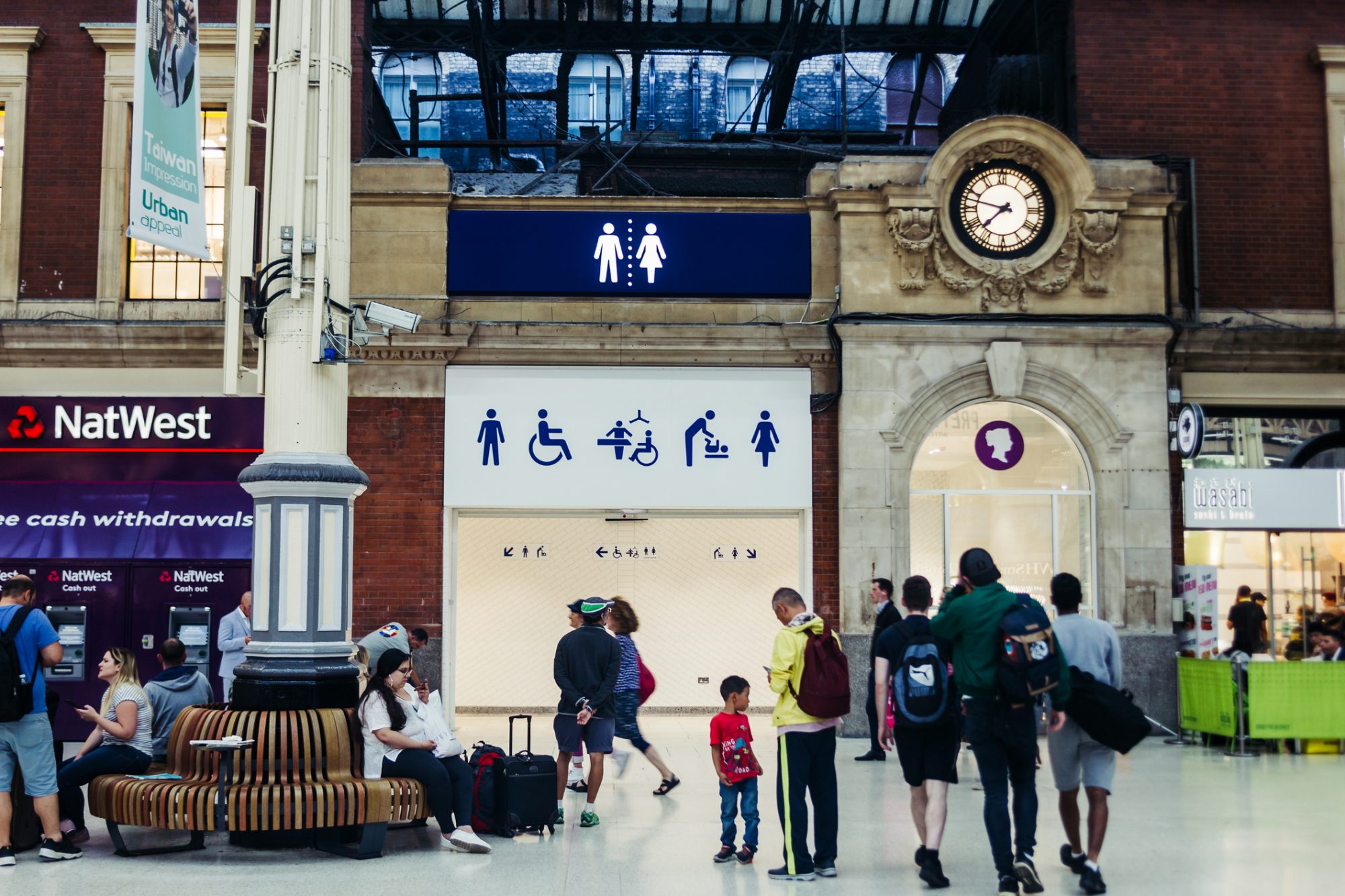UK (Parliament Politic Magazine) – Kemi Badenoch, the Minister for Women and Equalities, has recently unveiled her intentions to take a firm stance against the implementation of gender neutral toilets. Under the proposed regulations, single-sex toilets would be established as the standard, and Ms. Badenoch has unequivocally stated that these regulations will be applicable to all non-residential structures.
The guidelines will require the inclusion of self-contained toilets, which refers to fully enclosed toilet rooms equipped with individual hand basins. It is important to note that these plans will not impact disabled toilets, as the government has already confirmed.
Increasing Prevalence of Gender-Neutral Toilets
The government has officially confirmed its commitment to counter the increasing prevalence of gender-neutral toilets. This decision is part of a broader initiative aimed at safeguarding the sanctity of individual spaces.
Today, the government has made a significant announcement, declaring its proactive stance in implementing regulatory amendments. These changes will mandate that all future non-domestic public and private structures must include distinct, single-gender restrooms. Alternatively, they must provide a self-contained, private toilet facility at the very least.
The recent shift towards gender-neutral facilities has sparked concerns among women and elderly individuals who believe they are being unfairly disadvantaged. As publicly accessible toilets are being converted into gender-neutral spaces, issues surrounding dignity and privacy have come to the forefront.
The rise of gender-neutral facilities has resulted in the public being compelled to share cubicles and hand-washing areas. Consequently, this has led to longer waiting times in shared queues, reduced options for individuals, and a compromise on privacy and dignity for all.
New regulations and guidance have been implemented to ensure that women, who may require more frequent use of facilities due to pregnancy or sanitary needs, are now guaranteed access to appropriate facilities. This can be achieved either through a separate single-space designated for women or by providing self-contained, private toilets.
Approach to Safeguard Single Spaces
The action taken today further strengthens the government’s commitment and broader approach to safeguarding single spaces. “In addition to single toilets becoming the standard requirement for new non-residential buildings and places undergoing significant refurbishment, the guidelines will also promote the adoption of self-contained toilets.
These self-contained toilets consist of fully enclosed rooms equipped with a wash hand basin, providing individual users with enhanced privacy and convenience. This innovative approach aims to prioritize the preservation of privacy and dignity for all individuals, a principle that will be explicitly emphasized in the guidance.”
Kemi Badenoch, Minister for Women and Equalities, has revealed:
‘’It is important that everybody has privacy and dignity when using public facilities. Yet the move towards ‘gender neutral’ toilets has removed this fundamental right for women and girls. These proposals will ensure every new building in England is required to provide separate male and female or unisex facilities, and publish guidance to explain the difference, protecting the dignity, privacy and safety of all’’.
According to a recent YouGov poll, 47% of women surveyed expressed their belief that public spaces should provide separate restroom facilities for men and women. Interestingly, an equal percentage of women, another 47%, voiced their support for the inclusion of gender-neutral toilets alongside the existing separate facilities for men and women.
Read More: BVI Delegation Visits UK Parliament To Build Strong Relations
The Equity of Human Rights Commission
Earlier this year, the Equality and Human Rights Commission (EHRC), the UK’s authority on equalities, faced significant backlash for its recent guidance concerning transgender individuals. In April, the EHRC proposed a redefinition of the term ‘woman’ as ‘biological woman’, a move that would effectively exclude transgender individuals from accessing single-sex spaces, support groups, and other essential services.
Mermaids, a prominent transgender charity, expressed deep distress over the EHRC’s actions, condemning their attempt to undermine the rights of transgender individuals. The UK Government has officially announced its intention to eliminate gender neutral toilets in future constructions, as reported by Attitude.
A previous initiative, which sought public input on enhancing toilet accessibility for both men and women, received an overwhelming response of over 17,000 submissions. These responses encompassed a wide spectrum of opinions, with the majority advocating for a more comprehensive approach to toilet facilities that upholds dignity, accessibility, equality, and privacy for all individuals.
Implementing new regulations mandating single and/or universal toilets would yield favorable outcomes in terms of equality, particularly for individuals who currently experience discomfort or insecurity when utilizing restroom facilities.


